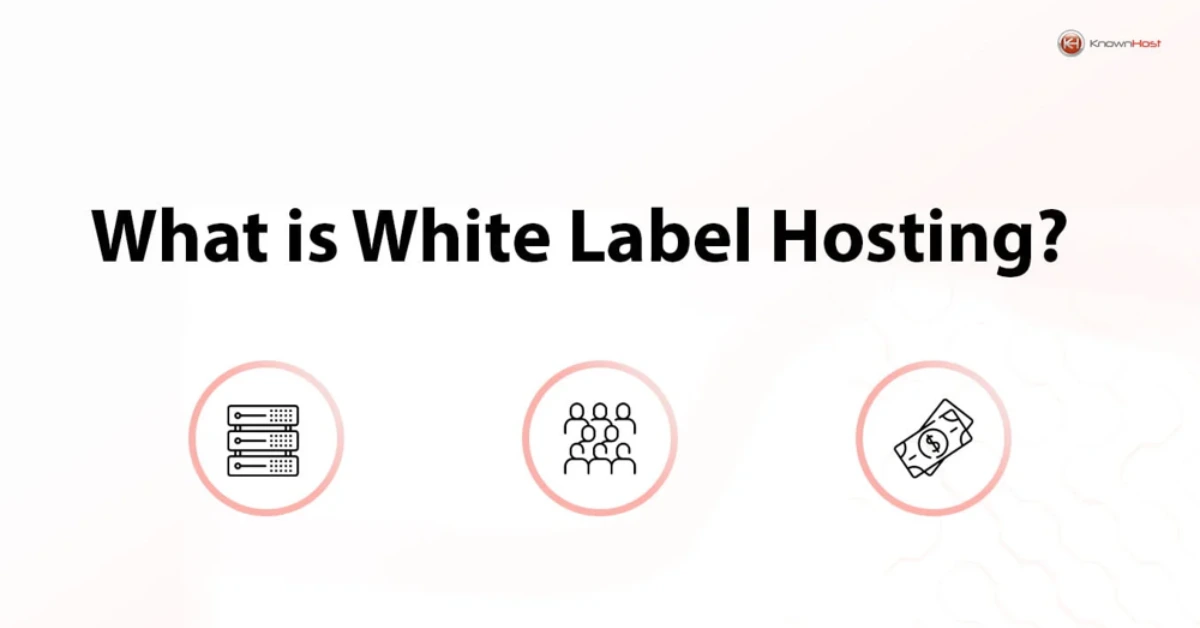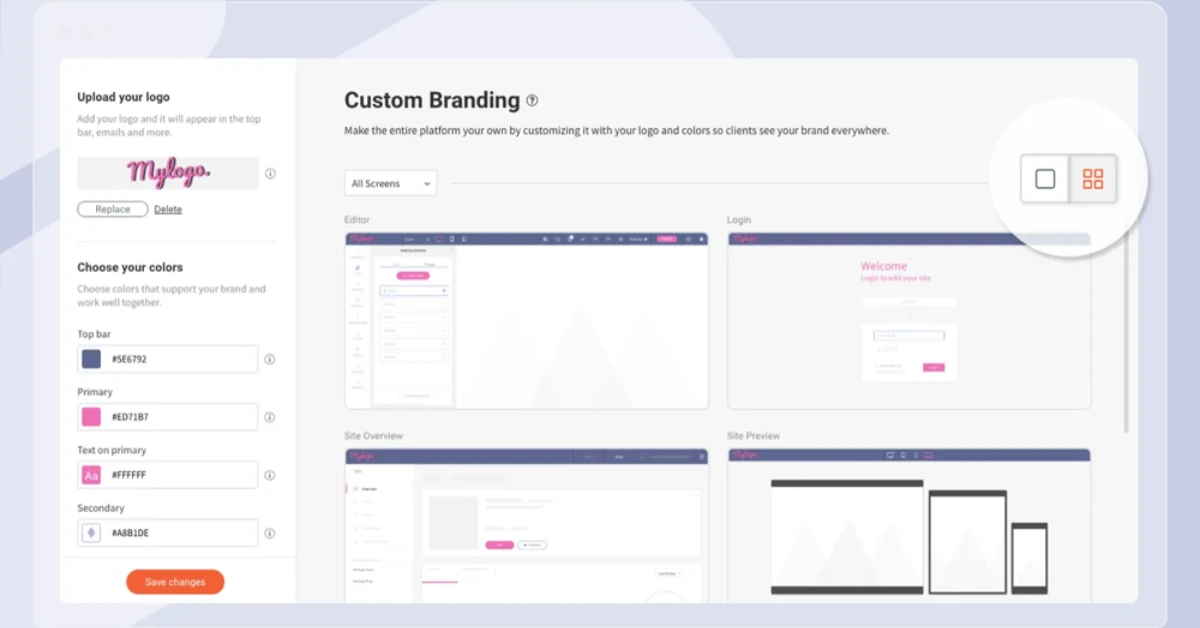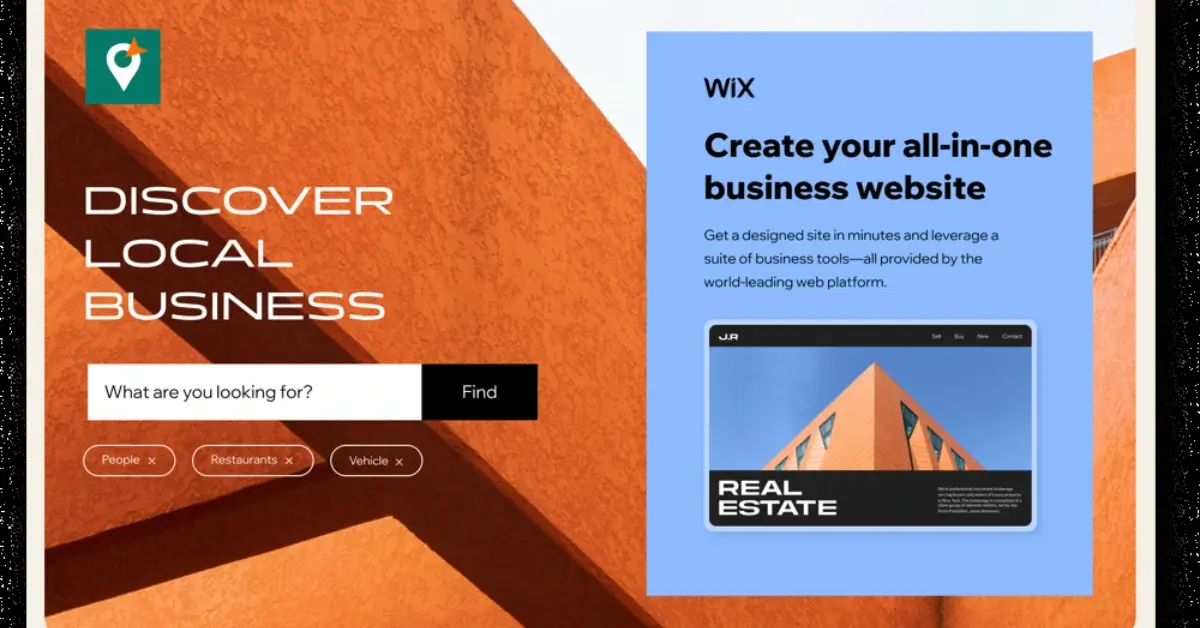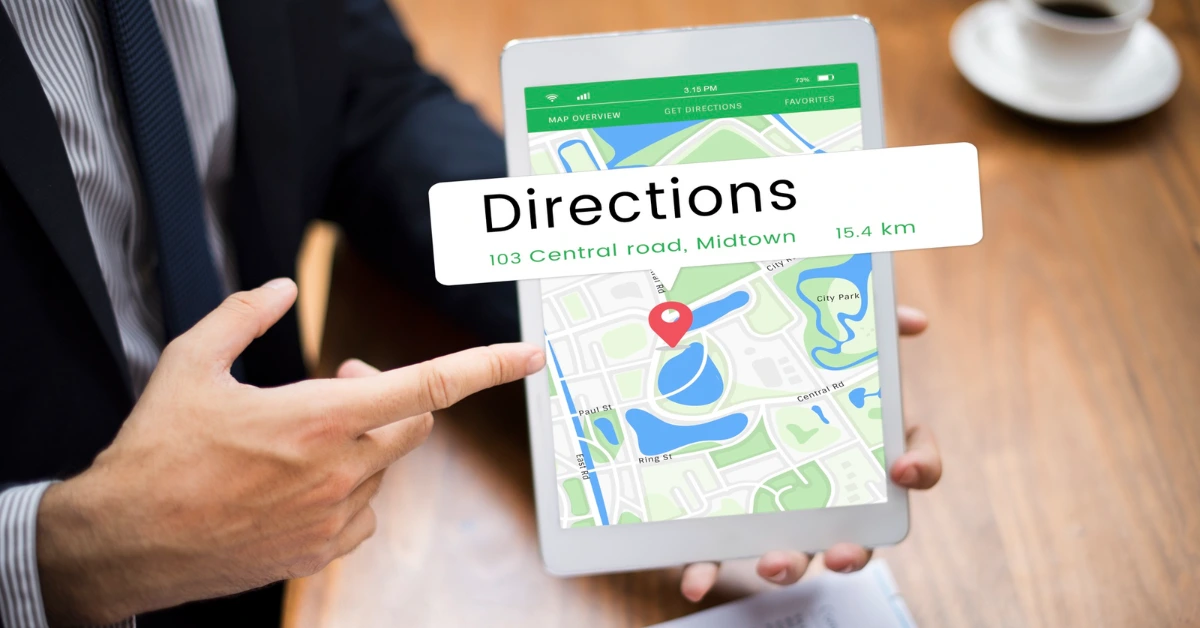Table of Contents
- What is a White Label Web Design?
- White Label vs Reseller Hosting vs DIY vs In-House
- Popular White Label Platforms
- Duda
- Webflow
- Wix
- Duda
- Benefits, Features, and Challenges of White Label Websites
- Use Cases: Agencies, Freelancers, and Consultants
- Conclusion
What is a White Label Web Design?
White label web design are ready-made or platform-built websites that agencies or resellers rebrand and offer as their own. In practice, a white label website is a site created by one company but customized (often just by swapping logos, colors, or domain) for another company to use. In essence, “a white-label website is a website that was made by someone else and sold under a different brand”. This means the end client only sees your brand (company name, logos, style), and is unaware of the original builder or underlying platform.
White label solutions span design, building, hosting, and management. For example, a web agency might use a white label website builder to quickly spin up client sites and then customize the agency’s logo and color scheme on the backend. The end result is a branded web development experience for the client – it looks like you built it from scratch, but you leveraged a ready-made system. White label website hosting works similarly: agencies can resell hosting under their own name (often called private or white-label hosting) while another provider handles the servers and support. Turnkey websites, which are fully built, complete sites that can be immediately rebranded and launched, are a prime example of white label web development – each “piece” (design, content, domain) comes together as a seamless, client-ready solution
In practice, using a white label website saves time and technical overhead. You don’t need to code a site or platform from scratch. Instead, you apply your branding (logo, colors, domain) to an existing framework. For instance, WebWave explains: a white-label site lets you “build sites on someone else’s platform, and deliver the site fully under your branding”. This strategy effectively turns an off-the-shelf product into your own professional offering. Common terms include white label web design, white label website builder, white label website hosting, branded web development, and turnkey websites – all referring to the same core idea of a ready-built solution rebranded for your clients.
By using white label websites, agencies and freelancers become the “face” of a service they didn’t have to invent. This allows a focus on customer relationships and growth, while a third-party handles the technical side. Later sections will compare this model to DIY builders and in-house development, and show how popular platforms (Duda, Webflow, Wix, etc.) support white label solutions.
White Label vs Reseller Hosting vs DIY vs In-House
White label websites vs Reseller hosting: These terms overlap but have nuances. White-label hosting (also called private-label hosting) is when you brand a hosting service as your own. For example, a web designer can bundle hosting into their packages without the client knowing it’s really provided by HostGator, A2Hosting, etc.. Traditional reseller hosting might still show some original branding or logos. In contrast, white-label hosting lets you use your own domain and company name everywhere. In white-label hosting, your customers never see the parent host’s brand – you set your own plans and pricing, and the backend (cPanel or portal) is fully rebranded. This lets you maintain a one-stop shop feel: design, domain, and hosting all under your brand.

White-label reseller hosting lets you sell hosting under your own brand while another provider handles maintenance.
White label vs DIY builders: A DIY site builder (like Wix, Squarespace, or a free CMS) is a tool end-clients can use directly. Agencies sometimes resent clients realizing “Hey, I could just use Wix myself!” White labeling solves this: instead of admitting you use Wix or WordPress, you rebrand the tool as your own. For example, Wix has a Partner Program that agencies can resell as a custom “site builder” under their brand. The advantage is clear: you gain credibility and reduce churn. Clients won’t see the underlying platform logos or URLs, so they feel they’re working with you, not a generic tool. It’s like giving clients their own mini-Wix under your agency name.
White label vs In-house development: Building websites entirely in-house (or hiring your own developers) offers full control but also high cost and time. You’d have to maintain codebases, templates, and servers yourself. White label services remove that burden. Instead of paying and managing a dev team, you pay a flat fee or subscription to a white-label platform and instantly get updated tech, security, and new features. Essentially, white labeling lets you “rent” expertise and software you didn’t build.
In short, white-label models let you expand services with minimal effort. As MilesWeb notes, adding hosting to your offerings makes you a one-stop shop and boosts income. Instead of just designing and then referring clients elsewhere, you keep control of the relationship. Clients pay you recurring fees for hosting, and you in turn pay the provider. This strategy deepens client loyalty (they remember your name) and creates new revenue, without the overhead of running your own data center.
Popular White Label Platforms
Agencies have many white label website solutions to choose from. Below we review three popular platforms—Duda, Webflow, and Wix—that support white-label services, each with distinct strengths.
Duda
Duda is explicitly built for agencies and service providers. Its platform is fully white-label ready, meaning every client-facing interface can bear your branding. Agencies on Duda get features like a custom-branded editor and client dashboards. As the company notes, you can add your own logo and colors throughout the platform so customers “edit their own websites without knowing that you’re using Duda”. Duda also provides a Client Management suite with white-labeled dashboards and billing tools.

Duda’s custom branding interface lets you upload your logo and select brand colors. The live preview shows a fully white-labeled editing and login experience (source: Duda product docs).
According to industry comparisons, Duda’s white label plan shines in design control and API access. It offers highly customizable templates, a robust API, team collaboration features, and built-in client portals. In practice, this means you can build pixel-perfect, SEO-optimized sites at scale. The trade-off is complexity: Duda may have a steeper learning curve, so it’s ideal for larger agencies with technical teams managing bigger projects. But for those agencies, Duda delivers a seamless white-label experience that truly looks like your own agency’s product.
Webflow
Webflow is known as a highly flexible web builder favored by designers and developers. On its Agency (or Growth/Agency Workspace) plans, you can completely white-label the editor for clients. In other words, Webflow’s interface can be rebranded so that clients see your name and logo instead of Webflow’s. Webflow excels at giving you full design and code control – you literally design with code if you wish. It also includes a built-in CMS and e-commerce features on paid plans.
For custom projects, Webflow is top-notch: you get the power of hand-coded flexbox/grid layouts and JS interactions, plus a visual editor for clients. The downside is its complexity. Webflow is not as drag-and-drop simple as Wix or other builders, so it’s best for agencies with skilled developers. In summary, Webflow is an excellent white-label solution when you need a high-end, custom site: it lets you brand the experience, while giving your designers and devs the freedom of code.
Wix
Wix is famous as a DIY website builder, but it also offers a white-label solution through its Wix Partners program. Under this program, agencies can create and manage sites for clients while keeping the Wix engine hidden. Essentially, clients get a “Wix-like” editor and hosting, but branded with your agency’s identity.
Wix’s strength lies in its huge library of templates and apps. Agencies can quickly build attractive one-off sites for small businesses. The platform is user-friendly and requires little technical expertise, making it ideal for freelancers or designers who want quick turnarounds. However, Wix white label is best suited for occasional sites or low-volume use: it can become cumbersome to manage many clients, and the editor can be overwhelming as it adds more features. In short, Wix is a good white-label solution for agencies focusing on small projects; it lets you sell an easy, all-in-one web solution under your brand.

Wix partner sites can be co-branded. This example shows a client-facing page with custom text (“Create your all-in-one business website”) using Wix’s tools, branded by the reseller (note the “Wix” labels are removed in the agency’s experience).
Benefits, Features, and Challenges of White Label Websites
White label website services come with several key advantages:
- Professional Branding: Since all client portals, editors, and dashboards use your logo and domain, clients consistently see your brand. This strengthens your agency’s credibility – clients feel they’re getting a proprietary system built by you, not a generic platform. It also keeps you top-of-mind for support and future sales.
- New Revenue Streams: By bundling hosting, design subscriptions, or maintenance under your brand, you can charge clients recurring fees. MilesWeb notes that offering hosting and other services makes you a one-stop-shop and “your revenue will increase quickly” through recurring payments. White label offerings often allow higher pricing because you’re selling a branded solution, not just a one-time build.
- Client Retention: Clients are less likely to jump ship when they feel reliant on your branded platform. As Codrops explains, if clients see your logo on the editor and support links, they view your agency as a long-term partner, not just a one-off vendor. This helps reduce churn – customers won’t realize they could DIY with a generic builder if everything says “Powered by YourCompany.”
- Efficiency & Scale: Using a white-label builder or hosting means not reinventing the wheel. You get proven, tested tools out-of-the-box, complete with updates, security, and tech support. This can dramatically speed up site launches. Many white-label platforms also include collaboration features (team comments, client feedback loops) and sales collateral to help pitch and manage multiple projects.
Common features of white-label web solutions include custom branded editor portals, automated client notifications, built-in SSL certificates, analytics dashboards, and site templates. For example, Duda offers branded collection forms (to gather client content) and customizable client dashboards. White-label hosting providers often include a private label cPanel or billing interface under your logo.
However, there are challenges to consider:
- Learning Curve: Some white label platforms (like Duda or Webflow) are complex. Agencies must train staff on the new tools. The initial setup of custom branding can take time, though most systems (e.g. Duda’s new interface) make it fairly easy.
- Technical Dependence: You rely on the third-party provider. If the platform has downtime or limitations, it reflects on you. Thus, choosing a reliable provider (99.9% uptime, good support) is crucial.
- Cost: White-label plans often have minimum monthly fees. For example, Duda’s white-label tier starts around $149/month. This can be steep for very small teams. It’s important to ensure you have enough clients to justify the cost.
- Limited Customization: While flexible, white-label builders may still have templates or features you can’t fully alter. If a client needs a truly bespoke function, you might still need custom development (on a platform like Webflow or moving off the builder).
Overall, the benefits (strong branding, time savings, extra revenue) often outweigh the challenges for growth-focused agencies. The key is to carefully evaluate features (APIs, collaboration tools, e-commerce support, etc.) and ensure the platform aligns with your clients’ needs.
Use Cases: Agencies, Freelancers, and Consultants
White label websites are popular among digital agencies, web designers, and consultants. Here are common scenarios:
- Marketing Agencies: A digital marketing firm may offer “website design” as part of its services but not build every site from scratch. Instead, the agency uses a white-label site builder to create client sites quickly. Clients see the marketing agency’s branding in the site editor and login screen, reinforcing the agency’s full-service image. This lets the agency upsell hosting and maintenance.
- Web Designers/Freelancers: Solo designers can compete with bigger shops by reselling white-label tools. For example, a freelancer might present a Wix- or Duda-backed CMS to clients as their custom system. When clients request future edits, the designer still provides the support under their own brand. It also means the freelancer isn’t locked in: if needed, they could hand over site management to a colleague but the client never knows it was a platform.
- Consultants & IT Firms: Even non-design businesses sometimes need to package web development. An IT consultant could bundle a white-label site with broader IT services. They simply include a “website setup” product that uses a white label host and builder, ensuring clients get a cohesive branded experience.
- Resellers and Agencies Bundling Services: Some companies (like telecom providers, hosting resellers, or SaaS firms) incorporate white-label web design into larger packages. For example, a hosting provider might offer white-label site design to its customers as an extra feature, using a platform like BaseKit or Vendasta.
In all these cases, the common theme is: the client sees a unified brand (yours), while you leverage powerful third-party tools behind the scenes. Many agencies even train sales teams to pitch the branded builder and ongoing services as part of their core offerings, making them partners rather than one-time contractors.
Conclusion
A white label website model lets you sell powerful web solutions under your own brand. You gain marketing and revenue advantages by offering branded web design, hosting, and site builders, without building everything yourself. We covered the basics of white label sites, how they differ from reseller hosting, DIY builders, and in-house development, and we reviewed top platforms (Duda, Webflow, Wix) that support this approach. We also saw how features like client dashboards and custom branding work, and why agencies and freelancers use white labels to scale.
Whether you’re a web agency, developer, or consultant, white labeling can streamline your workflow and deepen client relationships. As long as you carefully weigh costs and learning curves, a white label website strategy can be a turnkey way to grow your business while delivering professional, branded sites to your clients.







Share